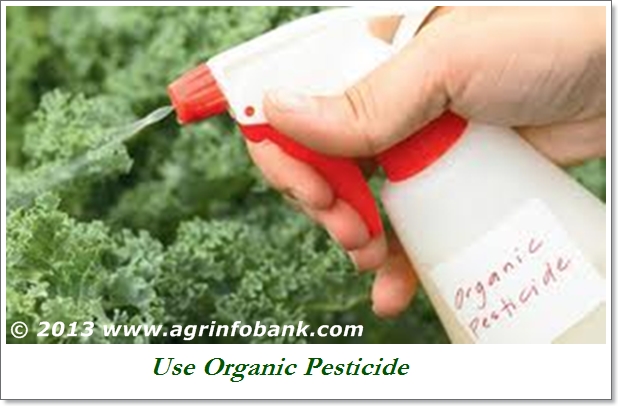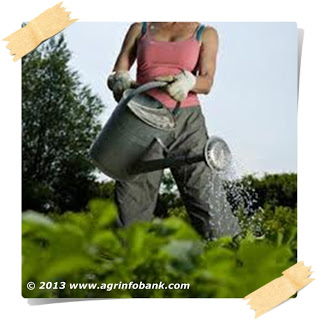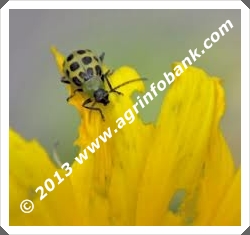Agriculture



- Homemade Pesticides For Roses
by Angela Ryczkowski, Demand MediaNumerous cultivars of roses (Rosa spp.) are prized as landscape specimens for multiple available growth habits and their attractive, fragrant blooms, which are commonly utilized as cut flowers. Rose plants are potentially...
- Effects Of Vinegar And Baking Soda On Soil Ph
Saturday, July 20, 2013 By Michelle Brunet Most plants prefer a soil pH between 6 and 7, states Cornell University's Garden Mosaics. A pH over 7 is alkaline and less than 7 is acidic. Some plants prefer an acidic soil less than 6, such as lilies,...
- Effects Of Sodium Bicarbonate On Plant Growth
Saturday, July 20, 2013 By Giselle Diamond Sodium bicarbonate is more commonly known as baking soda. It has been used for many different purposes, including for its benefits to plants. Baking soda is used to keep mold from growing on plants and...
- How To Get Rid Of Aphids
By Colleen VanderlindenInsect Name:Aphids, also known as plant lice.Description:Aphids are roughly 1/10th of an inch long. The most common colors are green and black, though brown, reddish-brown, and gray aphids inhabit some parts of the country. They...
- Natural Born Pest Killers
NATURAL BORN PEST KILLERS Home Remedies for Natural Pest ControlBy Eric Vinje, Planet NaturalNot everybody likes cucumbers. You may be interested to learn that ants hate cucumbers, especially cucumber peels. You'll especially appreciate that fact...
Agriculture
Natural Pesticides FROM Kitchen
G |
arden pests are one of the few things I find frustrating about gardening. Whether it's the snails taking over your lettuce or the aphids sucking on your roses ? it's definitely annoying ? but not a reason to fret and reach for harmful, toxic sprays. They might eliminate the pesky culprits, but they are harmful to you and the environment. Instead, try whipping up one of these simple recipes with ingredients you most likely have on hand.

What You Need
Spray bottles
Biodegradable liquid dish soap
Lemon or orange essential oil
Cooking oil
Baking soda
Garlic
Chili powder
Water
Biodegradable liquid dish soap
Lemon or orange essential oil
Cooking oil
Baking soda
Garlic
Chili powder
Water
Instructions

Natural Insecticidal Soap Spray
This is by far the spray I reach for most often. It's easy to make and keep on hand, and should take care of most of those annoying common pests such as aphids, mites, white flies, thrips, and mealy bugs. It kills them by attacking them at the skin, suffocating and therefore eliminating them. I like to add a few drops of orange or lemon essential oil, which is in itself a natural insecticide, especially effective against ants and scale, and it also helps the the spray stick to your plants.
1 1/2 tablespoons of liquid soap
1 quart of water
A couple drops of orange or lemon essential oil
1 quart of water
A couple drops of orange or lemon essential oil
Use a biodegradable, liquid soap (such as Murphy's oil soap, castile soap or Ivory), to make the mixture. Add water and essential oil to the spray bottle and shake. Spray your plant thoroughly, making sure you cover the underside of the leaves as well.
All-Purpose Garlic Chili Spray
Pepper and garlic are both natural insect repellents and will help to repel Japanese Beetles, borers, leafhoppers and slugs. Garlic also deters larger pest like deer and rabbit.
Natural Insecticidal Soap Spray (from recipe above)
1 tablespoon of chili powder (you could also use fresh or dried hot peppers)
5 cloves of garlic, crushed and cut roughly
1 tablespoon of chili powder (you could also use fresh or dried hot peppers)
5 cloves of garlic, crushed and cut roughly
Allow garlic and chili powder to steep overnight. Strain and pour into a spray bottle. Add Natural Insecticidal Soap Spray. Should keep for a couple weeks.

Baking Soda Spray
This spray is great for treating plants with fungal diseases. There is nothing quite as frustrating as discovering your plant has an unsightly case of mildew, a type of fungal disease. Suddenly your beautiful green cucumber and squash leaves are replaced by patches of grayish-white blotches.
1 tablespoon of baking soda
1/2 tablespoon of oil
2 quarts of warm water
1/2 tablespoon of oil
2 quarts of warm water
Add baking soda and oil to a cup of warm water until it dissolves. Mix in the rest of the water. Before attempting to spray and treat your plant, remove the most severely damaged leaves first. Then spray your solution, repeating every few days until it disappears. This mixture is best made and used immediately.
Additional Notes: It's best to spray your plants in the morning, before the sun is too hot or you run the risk of burning the leaves of your plant. And while these spray are non-toxic and less harmful than commercial pesticides, they will kill beneficial bugs along with the harmful ones. I recommend using these sprays sparingly, only treating the infected plants.
- Homemade Pesticides For Roses
by Angela Ryczkowski, Demand MediaNumerous cultivars of roses (Rosa spp.) are prized as landscape specimens for multiple available growth habits and their attractive, fragrant blooms, which are commonly utilized as cut flowers. Rose plants are potentially...
- Effects Of Vinegar And Baking Soda On Soil Ph
Saturday, July 20, 2013 By Michelle Brunet Most plants prefer a soil pH between 6 and 7, states Cornell University's Garden Mosaics. A pH over 7 is alkaline and less than 7 is acidic. Some plants prefer an acidic soil less than 6, such as lilies,...
- Effects Of Sodium Bicarbonate On Plant Growth
Saturday, July 20, 2013 By Giselle Diamond Sodium bicarbonate is more commonly known as baking soda. It has been used for many different purposes, including for its benefits to plants. Baking soda is used to keep mold from growing on plants and...
- How To Get Rid Of Aphids
By Colleen VanderlindenInsect Name:Aphids, also known as plant lice.Description:Aphids are roughly 1/10th of an inch long. The most common colors are green and black, though brown, reddish-brown, and gray aphids inhabit some parts of the country. They...
- Natural Born Pest Killers
NATURAL BORN PEST KILLERS Home Remedies for Natural Pest ControlBy Eric Vinje, Planet NaturalNot everybody likes cucumbers. You may be interested to learn that ants hate cucumbers, especially cucumber peels. You'll especially appreciate that fact...
